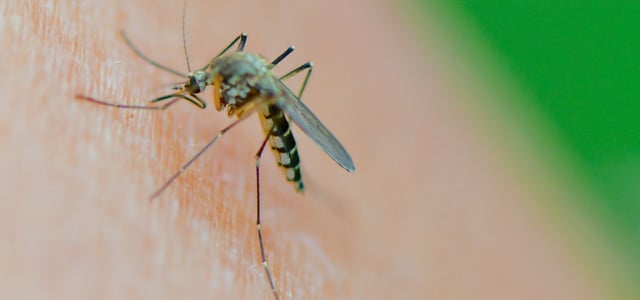
Just back from a long-distance trip or Europe and suddenly a high fever sets in? It could be an imported dengue infection. What you need to know about dengue fever.
Types of mosquitoes that transmit dengue fever – travelers mainly encounter them in tropical regions in Asia, South America and Africa. But mosquitoes can also infect people with it in Europe, for example on the Portuguese island of Madeira or in Italy. The CRM Center for Travel Medicine draws attention to this.
Every year, several hundred to over 1,000 imported dengue infections are recorded in Germany. Almost every third person affected came back from a trip to Thailand.
Dengue virus: Not every infection comes with symptoms
What symptoms should travelers and returning travelers think about dengue virus? First of all: According to the CRM, only around one in four infections is accompanied by symptoms of illness.
If it does, the illness often begins with a sudden, high fever. Other signs: aching limbs and a headache that feels behind the eyes. It can also cause flat skin rashes that look like sunburn.
According to Tomas Jelinek, scientific director of CRM, the fever goes away on its own after four to five days. If it persists or progresses in spurts, that speaks against dengue.
This also applies if symptoms only appear more than two weeks after returning from travel. Because: The incubation period is usually four to seven days, but in individual cases it can be longer.
With around one percent severe courses
A small proportion of those affected – one percent, according to the CRM – experience severe illness. The reason for this is that the infection causes fine blood vessels to become permeable. This allows fluid from the tissue to enter the blood.
Warning signs include abdominal pain, persistent vomiting, shortness of breath or bleeding from the mucous membranes, such as the gums.
The CRM advises that you should pay attention to whether these symptoms appear, especially around the fifth day of illness. If severe cases are left untreated, they can be fatal. Good to know: The first dengue infection is rarely severe.
Here’s how travelers can prevent themselves
Anyone traveling to an area where dengue is transmitted needs good mosquito repellent. Travelers can protect themselves from bites using repellents that are applied to the skin and keep mosquitoes away. Clothing also protects.
There are two vaccines against dengue fever – including one that is suitable for travelers. The European Medicines Agency (EMA) approved the Qdenga vaccine at the end of 2022 for adults and children aged four and over. The Standing Vaccination Commission Stiko is currently examining a possible vaccination recommendation for travelers to dengue areas.
Read more on Techzle\.com:
- WHO concerned about dengue virus in Europe
- How the climate crisis endangers health
- Corona vaccination: General practitioners’ association fears “organizational overkill”